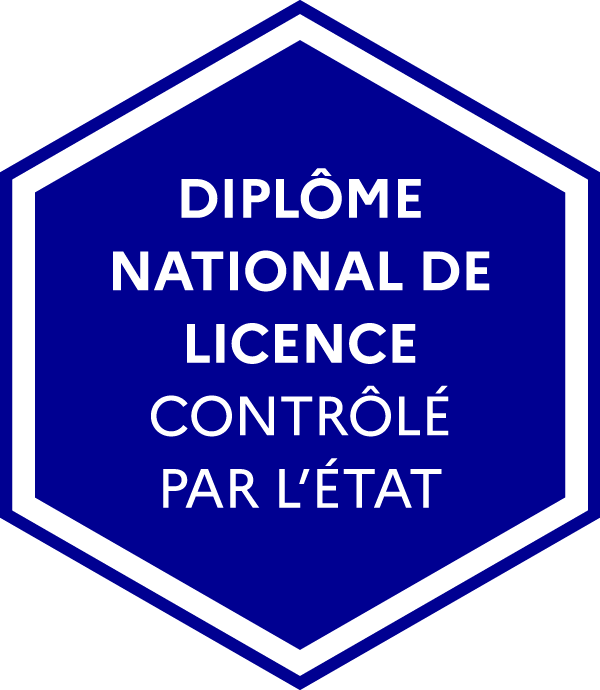Bachelor's degree Mathematical engineering


Entry requirements
2nd Year or similar level of a graduate course in Mathematics
Benefits of the program
The degree in Mathematics is designed to provide students with the theoretical foundations and basic knowledge in the field together with a strong grounding in Computer Science. Because of its specific nature (teaching in two fields from the first year), it is an original course offering compared to traditional preparatory classes or general science degrees, for example. By the end of undergraduate studies, it gives students a very high level of knowledge and skills in mathematics and computer science.
Acquired skills
Autonomy of reasoning, theoretical foundations necessary for abstract thought, command of fundamental concepts in analysis, algebra, probability and statistics, and geometry. Understanding and analysing a problem connected with mathematics, discussing the findings and setting up a model for a problem.
Capacities
35
Course venue
Your future career
The Licence in Mathematics mainly leads to a Master’s in Mathematics, either in Pure or Applied Mathematics, or in Actuarial Science. The major engineering schools also recruit students at the end of their 3-year degree, on the basis of results and competitive examination. At Université Gustave Eiffel, we offer further study in the Mathematics and Applications Master's programme, the Careers in Teaching, Education and Training Master’s programme for those intending to go into teaching, and the Actuarial Science Master's programme.
Semester 1
| Courses | ECTS | CM | TD | TP |
|---|---|---|---|---|
|
Introduction à la théorie des espaces vectoriels normes
Rappels espaces vectoriels de dimension finie – espaces euclidiens - formes quadratiques - espaces vectoriels normés - espaces de fonctions C, C¹– sous-espaces denses – sous-espaces complets - introduction aux espaces de Hilbert | 6 | 24h | 36h | |
|
Introduction à la théorie de l'intégration et probabilités
Mesure sur une tribu. Intégrale de Lebesgue, théorèmes de convergence de Lebesgue, intégrales à paramètres, intégrale multiple. Variables aléatoires, indépendance, lois usuelles, fonction caractéristique, loi des grands nombres, théorème de la limite centrale | 9 | 36h | 54h | |
|
Mathématiques numériques et Python
Représentation machine des nombres réels, intégration numérique, interpolation, résolution d’équation non linéaire (méthodes de dichotomie et Newton), méthodes d’Euler pour les EDO. Simulation numérique de lois de probabilité | 6 | 24h | 24h | 12h |
|
Analyse numérique matricielle
Rappels d’algèbre linéaire – réduction des endomorphismes – décompositions des matrices – algorithmes de résolution des systèmes linéaires - conditionnement – matrices symétriques définies positives | 6 | 24h | 36h | |
|
Anglais
| 3 | 24h |
Semester 2
| Courses | ECTS | CM | TD | TP |
|---|---|---|---|---|
|
Statistiques
Statistique paramétrique : estimateurs par la méthode des moments et du maximum de vraisemblance. Consistance des estimateurs. Convergence en moyenne quadratique, inter- valle de confiance des tests, asymptotique et non asymptotique. | 6 | 24h | 36h | |
|
Optimisation
Optimisation des fonctions de plusieurs variables – Lagrangien – notion de sous-différentiel et applications – introduction à l’optimisation stochastique – algorithmes de descente du gradient | 24h | 24h | 12h | |
|
Equations différentielles ordinaires
Etude qualitative des équations différentielles, théorème de Cauchy-Lipschitz, théorème d’isomorphisme des EDO homogènes, Wronskien, champ des tangentes, équations différentielles autonomes, systèmes différentiels. | 6 | 24h | 36h | |
|
Agèbre Option A
Vocabulaire de la théorie des ensembles (cardinal, quotient, relation d’équivalence). Groupes, actions de groupes. Applications aux groupes finis. Anneaux, anneaux principaux, arithmé- tique, polynômes | 6 | 24h | 36h | |
|
Compléments d'intégration et analyse Hilbertienne Option B
Espaces Lp, espaces de Hilbert, séries de Fourier, projection sur un convexe fermé, distance à un sous-espace, transformation de Fourier sur L2, formule de Parseval. | 6 | 24h | 36h | |
|
Stage Option A
| 6 | |||
|
TPE Option B
| 6 |

